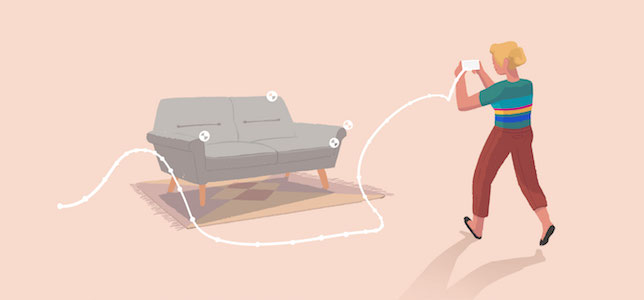Google Drops ARCore Preview for Developers

Image: Google.
Google on Tuesday unveiled a new developer platform for augmented reality (AR) apps called ARCore.
With Apple on the verge of releasing its ARKit with iOS11 soon, it was only a matter of time before Google came out with its competing version to allow Android developers to create AR apps. Smartphone AR has been on Google’s agenda for a few years starting with Tango, an initiative that launched in 2014. According to a company blog post, ARCore builds off that platform — without the sensors tied to Tango or any additional hardware. Notably, the introduction of ARCore means Google is phasing out its Tango brand, TechCrunch reported.
The new software development kit for ARCore enables developers to work in Java/OpenGL, Android Studio, Unity and Unreal.
Fundamentally, ARCore does two things: tracks a phone's position as it moves and builds its own understanding of the world. Developers will be able to play around with motion tracking, since ARCore can determine the position and orientation of the phone to accurately place objects. With light estimation capabilities, developers can adjust lighting to make AR experiences seem more realistic. Another major component of ARCore is environmental understanding, or being able to know when the phone is placed on a floor or a table.
Caption: A demo of ARCore.
ARCore is initially launching on the Google Pixel and Samsung S8 smartphones running Android 7.0 Nougat and above. Google is also opening up ARCore to the web, describing it as “a critical component of the future of AR” and releasing prototype browsers for web developers to experiment with AR (on both Android/ARCore and iOS/ARKit).
“We’re targeting 100 million devices at the end of the preview,” according to the blog post. “We’re working with manufacturers like Samsung, Huawei, LG, ASUS and others to make this possible with a consistent bar for quality and high performance.
In addition, Google launched a few other tools related to AR that can import 3D objects to ARCore, including Tilt Brush and Blocks. The first lets users paint in a 3D space, while the second allows users to quickly make 3D models. Google’s Visual Positioning Service (VPS) that debuted at Google I/O, however, is still in the works. VPS supports indoor location positioning and “will enable world-scale AR experiences well beyond a tabletop” once it is available, the announcement stated.
Developers who join the preview can choose to share their work in Google’s AR Experiments showcase and via social media using #ARCore.
About the Author
Sri Ravipati is Web producer for THE Journal and Campus Technology. She can be reached at [email protected].